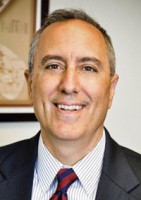Hoarding is a Poor Substitute for Estate Planning
By Peter Chieco

Hoarding, carried to an extreme, has been a mainstay of reality television for several years. But that doesn’t mean it’s a good idea, particularly for investors.
Take for instance an incident that made the news recently where an apparently very successful New Yorker had reportedly squirreled away millions of dollars in cash in an Upper East Side apartment. After he died, his widow, who was his only heir, could not access the apartment or the money because, despite his wealth, the hoarder had been living in a rent-stabilized apartment that was under the jurisdiction of the housing court.
The landlord claimed that back rent was owed. The widow was locked out. The parameters of what might have happened to all that money, while the issue played out in court, are limited only by one’s imagination.
This situation underscores the frivolity of hoarding huge sums of money. Without detailed records of how much was kept in the apartment – which basically contradicts the point of hoarding in the first place – the widow would have little documentation on just how much was there, whether taxes were owed, whether all of the money was present or even where it came from.
There also is the distinct possibility of fire or other disaster that could wipe out an entire hoard. In the real world there is much to consider when planning one’s estate, including making sure that heirs get what we intend them to have and that it goes to purposes we set in advance.
For investors with children or grandchildren, for instance, it is wise to think about their future education. A 529 college savings plan is a great place to deposit some discretionary income. And the earlier a 529 plan is established, more money potentially can be available when it is needed to help offset spiraling costs of higher education.
Grandparents are permitted to make gifts to a grandchild’s 529 plan, currently up to $14,000 annually. Checking with a trusted tax attorney or financial adviser is recommended as that number may change.
But college isn’t the only future expense that should be considered. Business owners may consider transferring all or parts of their business to children and grandchildren, and will have to decide which descendent may want to or be capable of taking over.
Other factors include the future configuration of the business, how it will be managed and by whom and how the business assets can best be transferred to the next generation.
Though this may seem like an obvious course of action, a formalized working agreement can help avoid future issues that can adversely affect the family structure. A successful transfer occurs when children and grandchildren participate in decision-making and leadership long before their parents pass on.
There are many other issues to consider when involved in estate planning, such as where to invest and when. A diversified portfolio may include blue chip stocks, mutual funds and perhaps some cash depending on economic circumstances and timing.
Recently, financial media outlets reported that American companies are holding up to $1.82 trillion in cash, meaning there is plenty to apply to the stock market and other growth areas when economic conditions warrant. This comes from reviewing nearly 2,000 nonfinancial companies, which could have a significant and highly positive impact on markets in the relatively near future.
Regardless of which path we take in determining our long-term finances, they all require a high degree of seriousness and sensible planning. Worthwhile legacies are not made by shoot-from-the-hip decision-making or whimsy.
To adequately prepare for the future, seriously consider what you want to do and create a workable plan to achieve that goal.
Sticking stacks of cash into mattresses and hidden caches in the walls may make for interesting television. But failure to adequately plan on your part can lead to confusion and bitterness for the people you originally intended as beneficiaries.
Peter Chieco is a financial adviser with the Global Wealth Management Division of Morgan Stanley in Greenwich, Conn. He can be reached at 203-625-4897.
The information contained in this article is not a solicitation to purchase or sell investments. Any information presented is general in nature and not intended to provide individually tailored investment advice. The strategies and/or investments referenced may not be suitable for all investors as the appropriateness of a particular investment or strategy will depend on an investor’s individual circumstances and objectives. Investing involves risks and there is always the potential of losing money when you invest. The views expressed herein are those of the author and may not necessarily reflect the views of Morgan Stanley Wealth Management, or its affiliates. Morgan Stanley Smith Barney, LLC, member SIPC.

Examiner Media – Keeping you informed with professionally-reported local news, features, and sports coverage.
